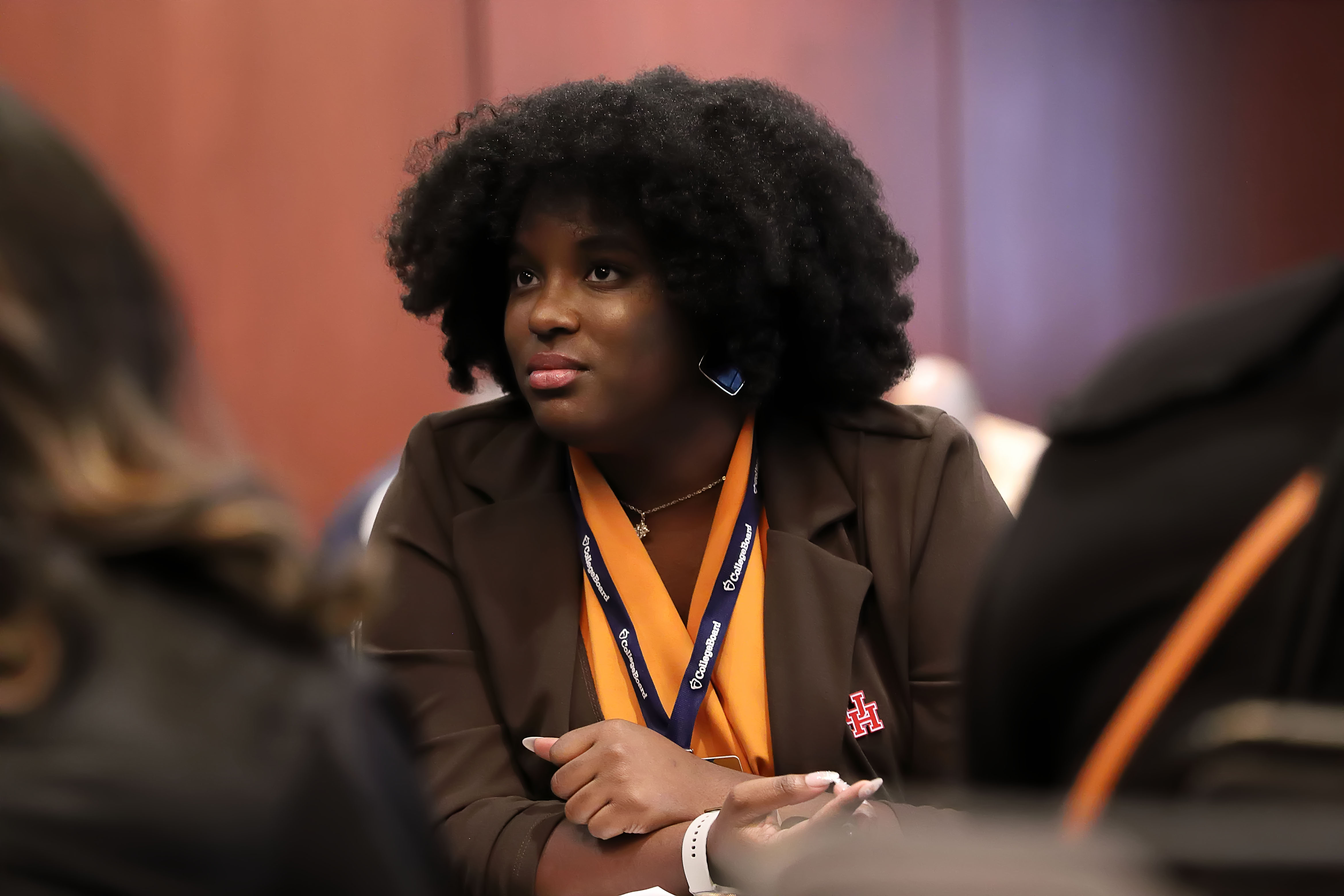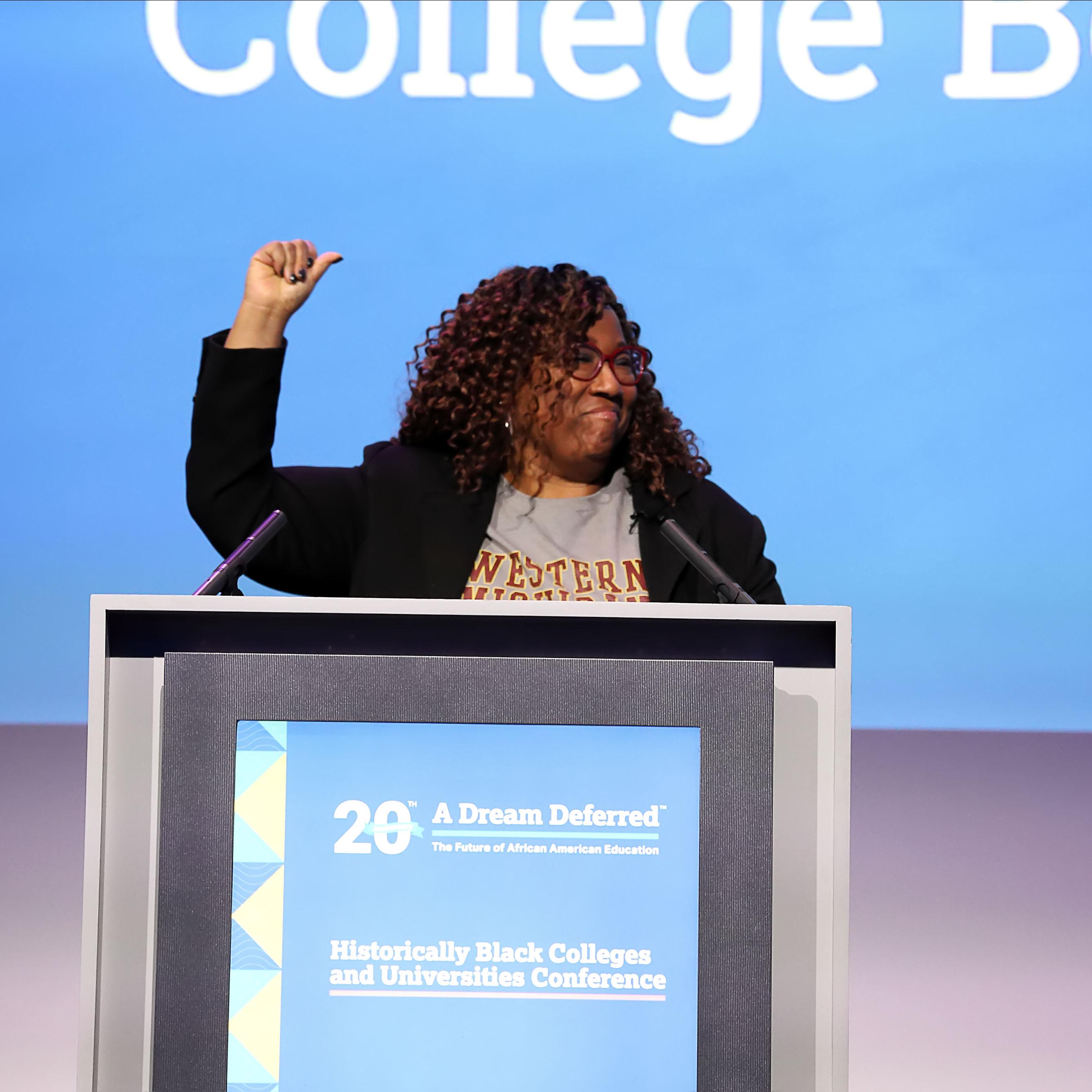A Dream Deferred | HBCU Conference 2024
Black Educators on the Value of an Inclusive AP Program

Black students benefit from having Black educators at the head of the classroom. That finding has remained true across decades of research, showing that students are more likely to succeed when they encounter teachers who share their background and life experiences.
During a powerful presentation at A Dream Deferred™, three Black women who lead Advanced Placement® classrooms and champion equity efforts at Homewood-Flossmoor Community High School in the Chicago suburbs called for more educators of color in AP courses.
Black teachers are especially attentive to inclusivity in the curriculum. We know the importance of understanding multiple stories and narratives.
Catherine Ross-Cook, Diversity, Equity, and Inclusion Coordinator, Homewood-Flossmoor Community High School
If schools are serious about closing persistent racial gaps in AP participation, Black educators are a critical part of the solution, said Krystal Davis, an AP teacher and education pathway coordinator.
“We are able to build real relationships with our students,” she said, “We’re able to motivate them, make them want to take our classes.”
It’s a matter of both straightforward inspiration—teachers who serve as models of Black excellence and academic confidence—and providing culturally responsive forms of student engagement and support, Krystal Davis explained.
She talked about the deep discussions she’s been able to host around issues of race, history, trauma, recognition—all themes that come up throughout her courses on literature and history. “We provide the space for students to have those hard conversations in and out of the classroom,” she said. Students encounter all kinds of difficult subjects or harsh language in popular culture—in music, online, in everyday conversation—and she wants them to ask deeper questions about where those issues originate. “Always asking, ‘Do you know the context behind that?’ It helps them develop this racial stamina.”
School leaders need to make room for teachers who can code-switch and make authentic connections with students from different backgrounds. As an example, Krystal Davis cited her decision to wear customized Converse sneakers to school, something that sparked conversation and recognition among her students but prompted some colleagues to question her professionalism.
“There’s respectability politics that show up for us even in how we show up for one another,” said Catherine Ross-Cook, diversity, equity, and inclusion coordinator at Homewood-Flossmoor. Giving Black educators ample opportunity to collaborate, talk, and offer mutual support is important in building a strong school culture, she added.
Terri Davis, another AP teacher at Homewood-Flossmoor, emphasized how valuable it has been to have Black colleagues who can share the burden of mentoring Black students and navigating challenges in adapting curriculum to fit student interests. That support allows her to cope with hard moments and focus on bringing joy and curiosity to the classroom, Davis said.
She likes to offer students the same advice she got from her dad: “If you have not learned anything new today, you have basically wasted your time.” She also passes on her belief that learning is easier in a classroom where students feel safe enough to talk and share.


